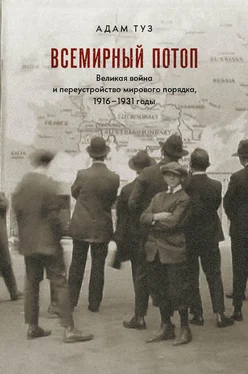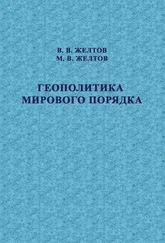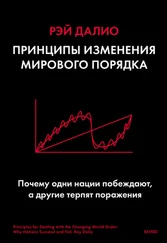Papers Relating to the Foreign Relations of the United States: Lansing Papers (Washington, DC, 1926), vol. 1, p. 924; A. Iriye, China and Japan in the Global Setting (Cambridge, MA, 1992), p. 99–101.
Fung, Diplomacy, p. 100–111.
Ibid., p. 131–132.
A. Clayton, The British Empire as a Superpower, 1919-39 (Basingstoke, 1986), p. 207–208.
Zarrow, China, p. 236–237.
M. Murdock, «Exploiting Anti-Imperialism: Popular Forces and Nation-State-Building during China’s Northern Expedition, 1926–1927», Modern China 35, no. 1 (2009), p. 65–95.
Fung, The Diplomacy of Imperial Retreat, p. 137–144.
Kuo, Komintern, p. 202–217.
Karl, Mao Zedong, p. 33.
Hofheinz, The Broken Wave, p. 53–63.
Craft, Wellington Koo, 92.
M. Jabara Carley, «Episodes from the Early Cold War: Franco-Soviet Relations, 1917–1927», Europe-Asia Studies 52, no. 7 (2000), 1, p. 297.
L. Viola, The War Against the Peasantry, 1927–1930: The Tragedy of the Soviet Countryside (New Haven, CT, 2005), p. 9–56.
L. D. Trotsky, «The New Course in the Economy of the Soviet Union» (March 1930), http: // www.marxists.org/archive/trotsky/1930/03/newcourse.htm; Л. Троцкий. Экономический авантюризм и его опасности // Бюллетень оппозиции (большевиков-ленинцев). 1930. 13 февраля (№ 9), http: // web.mit.edu/fjk/www/Fl/BO/ BO-09.shtml.
P. Duus (ed.), The Cambridge History of Japan, vol. 6: The Twentieth Century (Cambridge, 1988), p. 286–282.
Humphreys, Heavenly Sword, p. 136–142.
W. F. Morton, Tanaka Giichi and Japan’s China Policy (New York, 1980), p. 71.
K. Colegrove, «Parliamentary Government in Japan», The American Political Science Review 21 no 4 (1927), p. 835–852.
Humphreys, Heavenly Sword, p. 122–157.
N. Bamba, Japanese Diplomacy in a Dilemma (Vancouver, 1972), p. 134.
T. Sekiguchi, «Political Conditions in Japan: After the Application of Manhood Suffrage», Pacific Affairs 3, no. 10 (1930), p. 907–922.
M. Friedman and A. Schwartz, A Monetary History of the United States, 1867–1960 (Princeton, NJ, 1963) и K. Polanyi, The Great Transformation: The Political and Economic Origins of our Times (Boston, MA, 1944), p. 21–44.
B. Eichengreen, Golden Fetters: The Gold Standard and the Great Depression, 1919–1939 (Oxford, 1992) и A. Meltzer, A History of the Federal Reserve (Chicago, IL, 2003), vol. 1.
H. James, The German Slump: Politics and Economics, 1924–1936 (Oxford 1986).
Z. Steiner, The Lights that Failed: European International History, 1919–1933 (Oxford, 2005), p. 470–491; P. Heyde, Das Ende der Reparationen (Paderborn, 1998), р. 35–77; P- Cohrs, The Unfinished Peace after World War I: America, Britain and the Stabilisation of Europe, 1919–1932 (Cambridge, 2006), p. 477–571.
S. Schuker, «Les États-Unis, la France et l’Europe, 1929–1932», in J. Bariéty (ed.), Aristide Briand, la Société des Nations et l’Europe, 1919–1932 (Strasbourg, 2007), p. 385.
L. Trotsky, «Disarmament and the United States of Europe» (October 1929) http: // www.marxists.org/archive/trotsky/1929/10/disarm.htm; Л. Троцкий. Разоружение Соединенные Штаты Европы//Бюллетень оппозиции (большевиков-ленинцев). 1929. 4 октября (№ 6), http: // web.mit.edu/fjk/www/FI/BO/BO-06.shtml. и Соединенные Штаты Европы//Бюллетень оппозиции (большевиков-ленинцев). 1929. 4 октября (№ 6), http: //web.mit.edu/fjk/www/Fl/BO/BO-06.shtml.
S. Adler, The Uncertain Giant, 1921–1941: American Foreign Policy Between the Wars (New York, 1965), p. 79.
A. Ritschl, Deutschlands Krise und Konjunktur 1924–1934: Binnenkonjunktur, Auslandsverschuldung und Reparationsproblem zwischen Dawes-Plan und Transfersperre (Berlin, 2002).
B. Fulda, Press and Politics in the Weimar Republic (Oxford, 2009), p. 144–1446.
H. Mommsen, The Rise and Fall of Weimar Democracy (Chapel Hill, NC, 1996).
F. R. Dickinson, World War I and the Triumph of a New Japan, 1919–1930 (Cambridge,2013), p. 185–186.
Adler, Uncertain Giant, p. 130.
R. Sims, Japanese Political History Since the Meiji Renovation: 1868–2000 (London, 2001), p. 150.
I. Gow, Military Intervention in Prewar Japanese Politics: Admiral Kato-Kanji and the «Washington System» (London, 2004), 249–266, и J. W. Morley (ed.), Japan Erupts: The London Naval Conference and the Manchurian Incident, 1928–1932(New York, 1984).
L. Connors, The Emperor’s Adviser: Saionji Kinmochi and Pre-War Japanese Politics (Oxford, 1987), p. 117–126; T. Mayer-Oakes (ed.), Fragile Victory: Saionji-Harada Memoirs (Detroit, IL, 1968).
R. Boyce, The Great Interwar Crisis and the Collapse of Globalization (Basingstoke, 2009).
Schuker, «États-Unis», p. 393.
W. Lippman, «An American View», Foreign Affairs 8, no. 4 (1930), p. 499–518; R. Fanning, Peace and Disarmament: Naval Rivalry and Arms Control, 1922–1933 (Lexington, KY, 1995) p. 125.
W. Lipgens, «Europäische Einigungsidee 1923–1930 und Briands Europaplan im Urteil der deutschen Akten (Part 2)», Historische Zeitschrift 203, no. 1 (1966), p. 46–89. Более подробно об этих надеждах см. в книге бывшего премьер-министра: E. Her-riot Europe (Paris, 1930).
Boyce, Great Interwar Crisis.
Société des Nations, Documents relatifs а l’organisation d’un régime d’Union Fédérale Européenne, Séries de publ. questions politique, VI (Geneva 1930), p. 1–16.
Boyce, Great Interwar Crisis, p. 258–272.
W. Lipgens, «Europäische Einigungsidee 1923–1930 und Briands Europaplan im Urteil der deutschen Akten (Part 2)», Historische Zeitschrift 203, no. 2 (1966), p. 341.
H. Pogge Von Strandmann, «Großindustrie und Rapallopolitik. Deutsch-Sowjetische Handelsbeziehungen in der Weimarer Republik», Historische Zeitschrift 222, no. 2 (1976), p. 265–341; R. Spaulding, Osthandel and Ostpolitik: German Foreign Trade Policies in Eastern Europefrom Bismarck to Adenauer (Oxford, 1997), p. 267–269.
Читать дальше
Конец ознакомительного отрывка
Купить книгу











